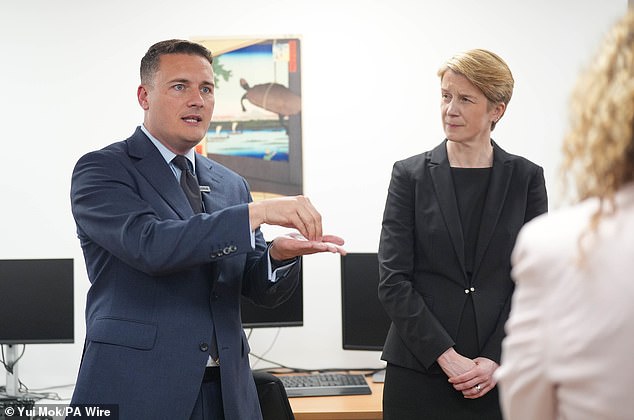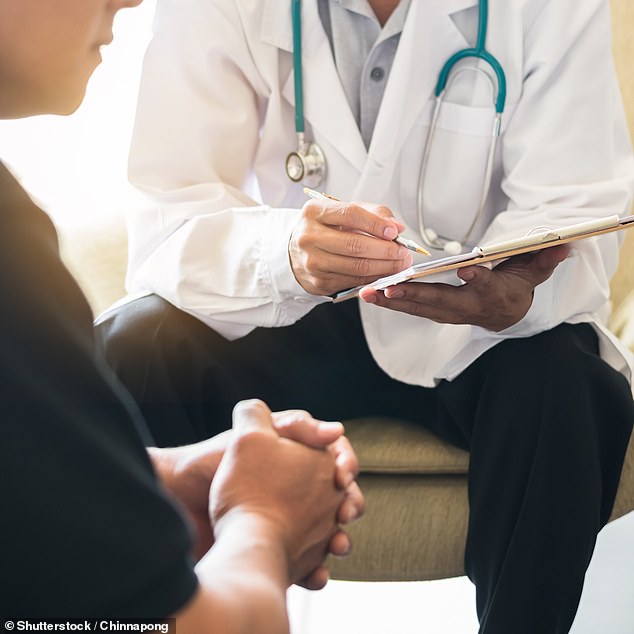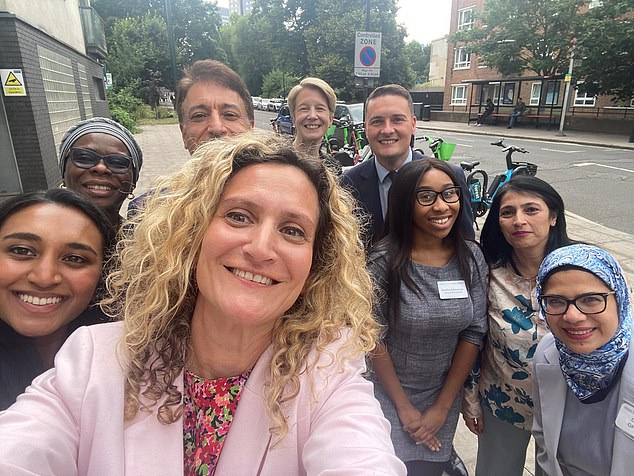Table of Contents
Our new Health Secretary, Wes Streeting, visited my practice in London last week, on his first day in office.
He decided to come to us first on the advice of NHS Chief Executive Amanda Pritchard, who I had previously invited to come and see the good work we were doing.
Mr Streeting sent a clear message: he plans, as he put it, to “fix the front door to the NHS”.
Billions of pounds would be diverted from hospitals to GP practices, he said, to tackle the crisis that has seen patients struggle to get appointments.
Despite record demand, we get only ten per cent of the £165bn NHS budget, so this was welcome news.
I liked Mr Streeting, but it will take more than money and words of encouragement to solve the monumental problems facing patients in primary care.
After having a few days to reflect on our meeting, I have come up with my own five-point plan that, if you choose to listen to me, could help resolve the crisis.
Good luck, Wes…
Wes Streeting with Dr Ellie and colleagues outside his London practice

Health Secretary Wes Streeting (left) with NHS England chief executive Amanda Pritchard on 8 July
Put an end to the 8am dating madness
It has been the biggest complaint from Mail on Sunday readers for the past few years: the requirement to call GP surgeries at 8am to get an appointment.
Many people fail to get through or are left waiting for long periods of time only to find out that there are no more appointments and they will have to try again the next day. This delays crucial treatment for those who need it and some people simply stop trying.
This flawed system needs to be stopped. And some practices, like mine, have managed to get rid of those frustrating queues.
When our patients want to be seen, they call and our receptionist puts their details on a list. One of us GPs goes through the list and decides who needs to be seen that day and who can wait a while – for example, a patient with chest pain, which could be a sign of a heart problem, versus someone with a chronic rash.
Our support team will send text messages to patients to let them know when they will be seen. This essentially means that seriously ill patients move to the front of the queue.
Some people are upset that they cannot be seen immediately, but it is an efficient system and protects most patients from harm.
The problem is that, despite clear evidence that systems like ours work well, not all practices work this way, so we end up with a two-tier NHS, where some patients benefit and others really struggle.
That’s not fair. We need to simplify it so that all patients have equal access to their GP, not just those lucky enough to live near a good practice.
How a 50p fee can solve the problem of no-shows
This was my controversial recommendation five years ago, and I stand by it.
I say this with regret, because I believe that healthcare should be free at the point of delivery, but that small 50p charge is a symbolic gesture to change people’s mindset about the waste of GPs’ time.
The latest figures, from May 2023, reveal that there were 1.2 million DNAs (unattended) in general practice.

The latest figures, from May 2023, reveal that there were 1.2 million ANDs (did not attend) in general practice (file photo)
In one year, this amounts to 14.4 million consultations. Every ten-minute consultation with a GP costs the NHS around £30, which means £432 million is wasted.
Charging 50p is enough to make people think twice about wasting doctors’ time, but not enough to make them out of pocket. Consider the tax on plastic bags, the use of which has fallen by more than 90 per cent. We would potentially save millions and reduce waiting times. And it is cheaper than the £10 tax that Rishi Sunak suggested last year.
Let’s put an end to the nightmare of drug shortages quickly
Every day, patients tell us that they cannot get the medication we prescribe.
That’s why this newspaper has launched a campaign to end drug shortages with four key demands: give pharmacists the power to make substitutions when drugs run out; force manufacturers to give advance notice of shortages; create a public database so patients can check where drugs are in stock; and allow patients to use better-stocked hospital pharmacies to obtain medicines.
Mr Streeting was aware of the problems but did not disclose anything. He needs to prioritise this issue before it takes up more of the GP’s time and puts more patients at risk.
Use the NHS app to replace time-consuming administrative processes
It may not seem like a priority, but there is a lot of administrative overhead on GPs, which prevents us from caring for more patients.
We are asked to write letters to patients to give to housing authorities about their health needs, as well as letters explaining their absences from school and even letters to cancel gym memberships.
It’s very frustrating and it’s not a GP’s job.
If the NHS app worked better, patients could use it to download their diagnoses and the drug treatments they are taking, which could be passed on when appropriate.
And if the app were better, patients could even book an appointment to see hospital specialists.

Every day, patients tell their GPs that they cannot get the medication they have been prescribed (file photo)
Incorporating first aid into the national curriculum
Young people are much less able to care for themselves. Research shows that many people under 25 go to the GP for a minor medical problem, such as a cut.
Managing these visits takes time away from the GP, when a pharmacist could easily handle them, or even the patient themselves.
That’s why I think schools should teach first aid. And I’m not just talking about CPR. Children should know how to perform basic medical tasks, like how to treat a wound or what to do when they twist their ankle.
I understand that schools are under pressure, but providing these skills could go a long way to freeing up jobs.
Pharmacy First, which enables pharmacists to treat seven conditions including sinusitis, earache and sore throat, is a start, but we need to empower more people to help themselves when they can.


